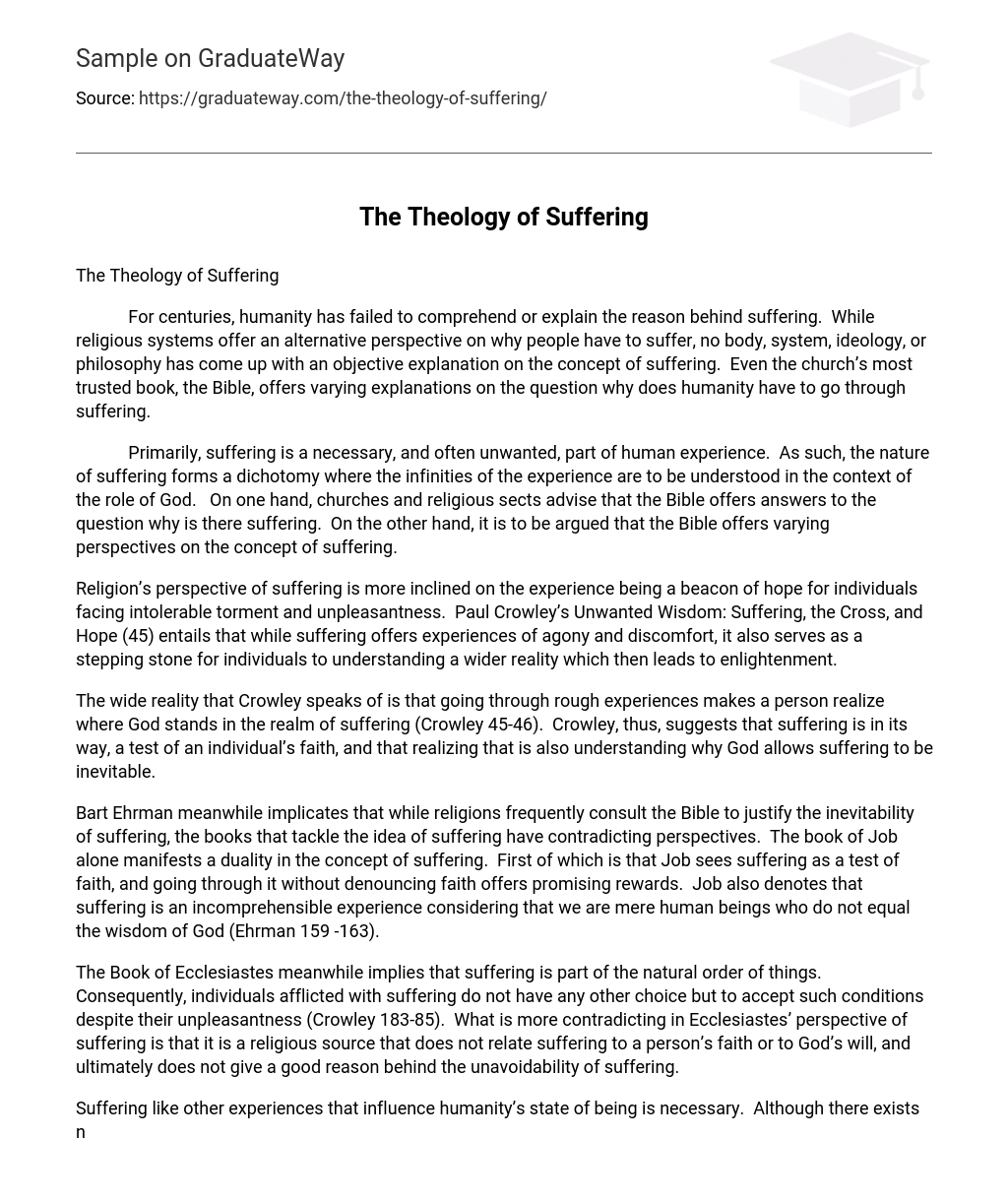For centuries, humanity has failed to comprehend or explain the reason behind suffering. While religious systems offer an alternative perspective on why people have to suffer, no body, system, ideology, or philosophy has come up with an objective explanation on the concept of suffering. Even the church’s most trusted book, the Bible, offers varying explanations on the question why does humanity have to go through suffering.
Primarily, suffering is a necessary, and often unwanted, part of human experience. As such, the nature of suffering forms a dichotomy where the infinities of the experience are to be understood in the context of the role of God. On one hand, churches and religious sects advise that the Bible offers answers to the question why is there suffering. On the other hand, it is to be argued that the Bible offers varying perspectives on the concept of suffering.
Religion’s perspective of suffering is more inclined on the experience being a beacon of hope for individuals facing intolerable torment and unpleasantness. Paul Crowley’s Unwanted Wisdom: Suffering, the Cross, and Hope (45) entails that while suffering offers experiences of agony and discomfort, it also serves as a stepping stone for individuals to understanding a wider reality which then leads to enlightenment.
The wide reality that Crowley speaks of is that going through rough experiences makes a person realize where God stands in the realm of suffering (Crowley 45-46). Crowley, thus, suggests that suffering is in its way, a test of an individual’s faith, and that realizing that is also understanding why God allows suffering to be inevitable.
Bart Ehrman meanwhile implicates that while religions frequently consult the Bible to justify the inevitability of suffering, the books that tackle the idea of suffering have contradicting perspectives. The book of Job alone manifests a duality in the concept of suffering. First of which is that Job sees suffering as a test of faith, and going through it without denouncing faith offers promising rewards. Job also denotes that suffering is an incomprehensible experience considering that we are mere human beings who do not equal the wisdom of God (Ehrman 159 -163).
The Book of Ecclesiastes meanwhile implies that suffering is part of the natural order of things. Consequently, individuals afflicted with suffering do not have any other choice but to accept such conditions despite their unpleasantness (Crowley 183-85). What is more contradicting in Ecclesiastes’ perspective of suffering is that it is a religious source that does not relate suffering to a person’s faith or to God’s will, and ultimately does not give a good reason behind the unavoidability of suffering.
Suffering like other experiences that influence humanity’s state of being is necessary. Although there exists no concrete explanation to the inevitability of such experience, people find ways to put an end to it, there exists varying perspectives on why it happens. Therefore, what matters is not the reason as to why humans have to go through suffering, but on how people should look at the conditions that face them.
Works Cited
Crowley, Paul. Unwanted Wisdom: Suffering, the Cross, and Hope. New York: Continuum International Publishing Group, 2005.
Eherman, Bart, D. God’s Problem: How the Bible Fails to Answer Our Most Important Question–Why We Suffer. New York: HarperCollins, 2008.
;





